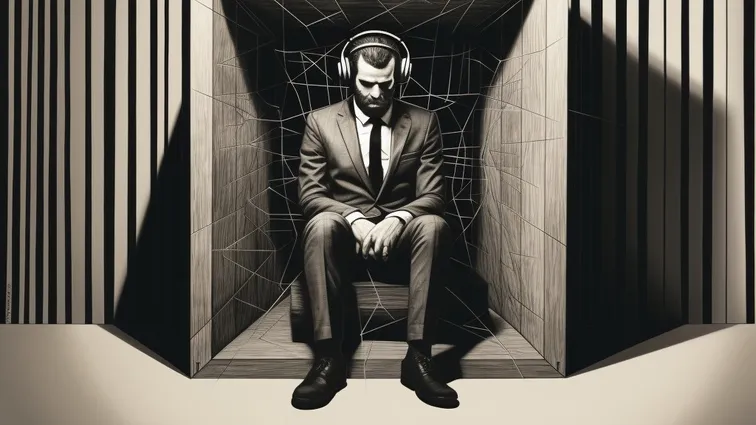On Friday, 14 July 2023, the long-awaited amendment to the Czech Competition Act (CCA) was published in the Collection of Laws. Its main objective is to implement the ECN+ Directive (which is intended to strengthen the position of competition authorities). However, the Czech legislator used this to make a number of other changes to the CCA. As the deadline for transposition of the ECN+ Directive has already expired on 4 February 2021(!), a very short vacation legis period has been set – only 15 days after the promulgation of the amendment. Its entry into force is therefore only a matter of a few days (29 July 2023). In this forum we would like to gradually introduce you to the novelties brought by the amendment to the CCA: both those that are based on the ECN+ Directive and those that are purely the work of the Czech legislator, and the Office for the Protection of Competition (OPC).
We dedicate the first episode of the series " The amendment of the Czech Competition Act in a nutshell" to the most controversial change. This is the possibility for the OPC to use as evidence in cartel cases the recordings of telecommunication traffic, data on telecommunication traffic or recordings made during the surveillance of persons and things obtained by the law enforcement authorities under criminal law.
This provision was seemingly included in the amendment to the CCA only during the deliberations in the Chamber of Deputies. However, it was in fact already included in the version submitted by the CCA for consultations. During the consultations process, this provision became the target of criticism, among other things because of concerns about the preservation of the right to defence. The version approved by the Czech Government did not contain it anymore. However, it returned to the amendment as part of the amendments proposed by the MPs.
Thus, there is no explanatory memorandum to the new provision on the use of records as evidence, but there is an explanatory memorandum to the original draft provision. According to it, the OPC already routinely receives recordings of telecommunication traffic (wiretaps) when taking over documents from the law enforcement authorities, but so far it has not been able to use them, even though they could serve as essential evidence.
What can the OPC obtain from the law enforcement authorities and use as evidence of a cartel?
Telecommunications traffic is basically any communication using electronic equipment. This can be a mobile phone, landline, radio or other similar device. It does not only include voice communication but also the sending of electronic messages using these devices.
From the telecommunication traffic, the OPC may obtain the content of the communication recorded by the law enforcement authorities, as well as operational and location data, i.e. e.g. the identity of the communicating persons (telephone numbers, addresses, etc.), the date, time, method and duration of the communication or the geographical location of the electronic device.
Surveillance of persons and things includes surveillance by various technical means. In addition to visual recordings (e.g. photographs of persons in certain locations/certain companies), the OPC may obtain e.g. records from spatial audio surveillance, placement of microphones ("bugs") in residences/business premises, visual recordings of the content of correspondence (without having to open them), etc.
Limits on the use of records
The OPC may use as evidence records that were made in criminal proceedings conducted for suspicion of a cartel offence with natural persons, which were provided to the OPC by the law enforcement authorities after the pre-trial proceedings were terminated. The termination of the pre-trial proceedings may occur, in particular, by filing an indictment, by referring the case to another authority (e.g. the OPC) or by discontinuing the prosecution.
In addition, the OPC may use the records obtained in criminal proceedings for another offence against the mandatory rules of the market economy and the circulation of goods in relations with foreign countries, if such conduct may also constitute a cartel and the law enforcement authorities refer or transfer the case to the OPC. A typical example of such an offence would be bid rigging.
No other limits or safeguards are included in the amendment to the CCA.
Significant interference with fundamental rights and freedoms
Although we understand or even support many of the changes in the amendment to the CCA, we have long protested against the introduction of the possibility to use wiretaps as evidence. The wiretapping of telecommunication traffic and the surveillance of persons and things (making records of them) constitute a tangible interference with the right to privacy – in particular Art. 13 of the Charter of Fundamental Rights and Freedoms (Charter) (the protection of the secrecy of letters) and Art. 8 of the European Convention on Human Rights (ECHR) (protection of private and family life). Moreover, if set up incorrectly, their handing over between the law enforcement authorities and the competition authority may be contrary to the rights of defence guaranteed by Art. 40 of the Charter and ART. 6 of the ECHR.
It must be acknowledged that the possibility to use wiretaps is also available to competition authorities of some other Member States. However, as always, the devil is in the detail. We will explain why.
The compatibility of the use of records obtained by the Dutch Competition Authority from law enforcement authorities with Article 8 ECHR was recently addressed by the European Court of Human Rights (ECtHR) in the Janssen de Jong Groep case. The ECtHR concluded that there was no violation of the right to privacy – even if the handing over to the competition authority was made without the prior knowledge of the undertaking concerned. Indeed, the handing over was foreseeable to the undertaking in the light of the relevant legislation and its history and the case law of the Dutch Supreme Court.
The ECtHR found that the interference with the right to privacy had a legitimate aim: the protection of the economic well-being of the country. In particular, however, the ECtHR examined the existence of proportionate measures against the abuse of the power in question. It found that Dutch law sets limits and conditions on the use of this power (inter alia, a balancing of interests test and a proportionality test must first be carried out). In addition, the undertakings concerned have the possibility to challenge the handing over of the records in court (which was not exercised by the parties in the present case).
And this is the problem with the Czech legislation. The new Czech legislation does not contain any such protective 'elements'.
As regards the protection of the right of defence, this is ensured in criminal proceedings by the fact that an independent and impartial court decides on the use of the recordings as evidence and by the defendant's ability to sufficiently comment on the recordings or challenge them before the court decides on his guilt.
However, a party to administrative proceedings conducted by the OPC will not have such an opportunity. In fact, the amendment to the CCA contains a provision that prevents a party from having access to the records submitted by the law enforcement authorities until the issuance of the statement of objections – i.e. until the moment immediately preceding the issuance of the first instance decision.
Thus, the party to the proceedings becomes acquainted with this often crucial document at the last stage of the proceedings. It can react (or contest this evidence) within the time-limit for comments on the evidence and the statement of objections (typically one month). In the context of the length of the entire proceedings (typically one year), this means that in practice it has a disproportionately shorter period of time than the time for which the OPC can examine this document. In contrast to the leniency programme (based on the prisoner's dilemma), here we see no reason for such a delay in the moment of acquaintance with this document.
Moreover, at the time of the issuance of the statement of objections, the OPC (prosecutor and judge in one) already has, in principle, formed conclusions about the conduct under investigation, which can hardly be overturned by a party in its reply to the statement of objections. Moreover, the party to the proceedings will not be able to make copies or extracts from the records on file – its only option is to memorise them.
The party to the proceedings before the OPC is thus in a much more difficult position than the defendant in criminal proceedings. However, he faces very serious consequences in the form of multi-million fines or a ban on participation in public procurement for up to three years.
Conclusion
Our objections have not been heard in the legislative process. If the law enforcement authorities make records from a wiretap in criminal proceedings relating to a selected range of offences after 29 July 2023, it can be used by the OPC without the investigated undertaking having adequate means of defence. This brings a significant weakening of the procedural position of the investigated entities and, of course, a significant strengthening of the investigative powers of the OPC.
Our concerns as to whether the new regulation is consistent with the fundamental rights guaranteed in both the Charter and the ECHR persist. It remains to be seen whether the new legislation will be subject to a review of its constitutionality or compliance with the ECHR. Whether any competition case based on wiretapping will make it to the Constitutional Court or the ECtHR remains to be seen in the coming years.









